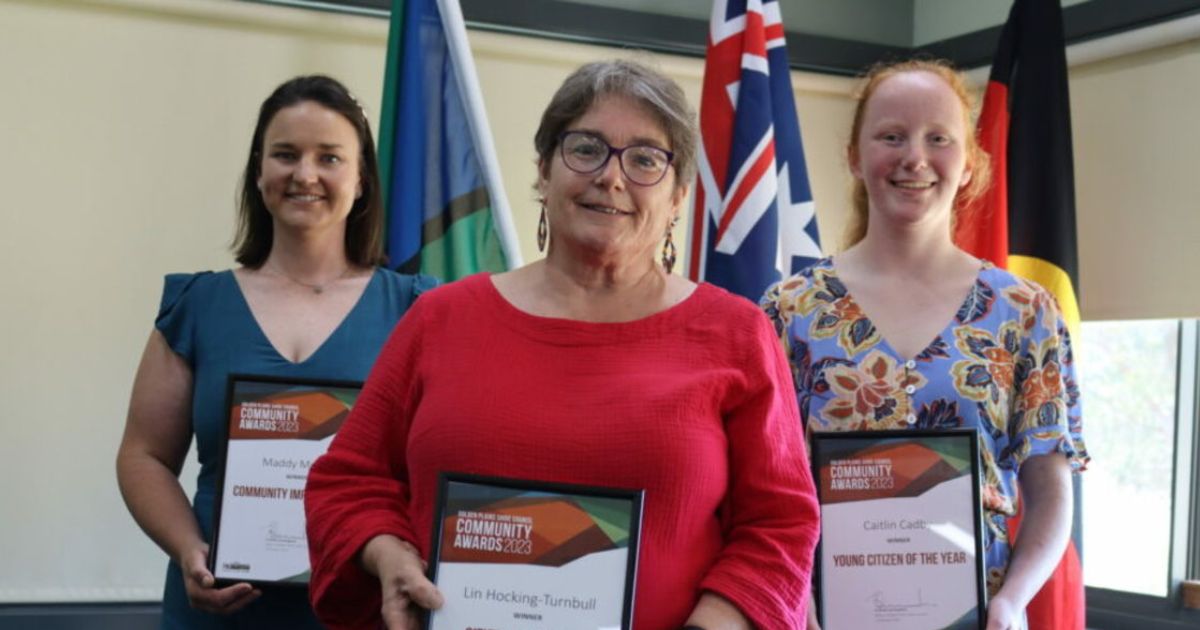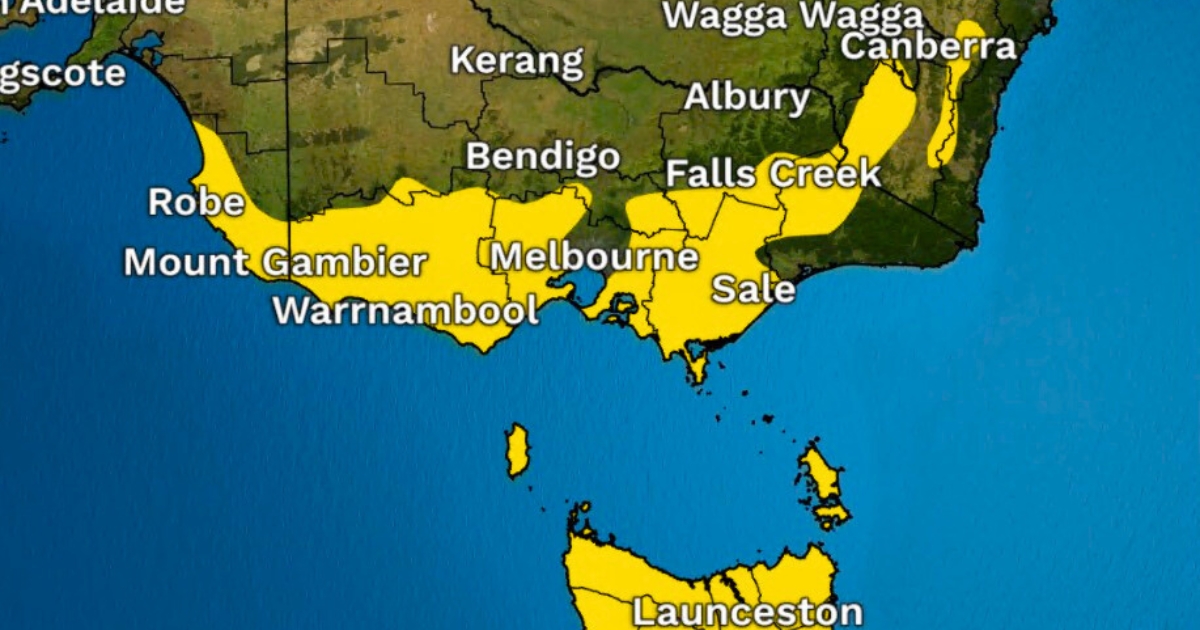A Venezuelan family’s journey to Meredith

A new life: Venezuelans Yessy Medina and Raul Manriquez, with their son Paul, work at Meredith Dairy and live in Geelong. Photo: SUPPLIED
WHEN Rual Manriquez arrived in Australia from Venezuela in 2013 there were just over three thousand Venezuelan expats in this country.
Like many immigrants before him Mr Manriquez decided to leave his home country in search of a better life.
“I was 32, working as a qualified accountant in Venezuela and I realised it was going to take a long, long time for me to reach the level of my then bosses, to have a good salary and a good life,” he said.
“I needed to do something different because if I followed the same path as everyone else, I would spend my life there.”
As a consequence of the decision he made six years ago Mr Manriquez now works as a graduate accountant at Meredith Dairy.
“I am so grateful to Julie and Sandy [Cameron, owners of Meredith Dairy] and also the people working there, as everyone has been very supportive,” he said.
Life as a Spanish-speaking immigrant hasn’t been easy.
He arrived on a student visa to undertake a Master of International Business and Leadership at Swinburne University.
“I chose to study in Australia, over the USA and Canada, because it was the only country that allowed me study and work at the same time,” he said.
“It meant I could earn money while I was studying but the main thing was to practice my English.
“If you can’t express yourself and communicate your knowledge, it’s like you know nothing.”
He studied full time, worked every night as a restaurant kitchen hand to make sure he could eat and pay the rent as well as finding time for assignments and out of class study.

As an international student he paid 30 per cent more for his degree than Australian students did studying the same course.
Life in Venezuela was rapidly becoming harder so Mr Manriquez needed to get his girlfriend, now wife, Yessy Medina, out of the country.
She applied and was granted a student visa with the intention of studying a bachelor degree in Australia.
“Economically and politically it was very bad in Venezuela so this meant I had to create more options for us on the work visa,” Mr Manriquez said.
“One of those options was to stay in Australia, but it wasn’t that easy as a permanent resident visa is a complicated process.”
Granting of a permanent resident visa works on a point system.
Apart from having the proper skills applicants need to be in a specified age group and to have a stipulated level of English.
“The number of resident visas available are limited in number, so it is a competition between you and every one else trying to say in the country,” he said.
“I was struggling to achieve the best amount of points so I realised I needed to do something different.”
He was working with an immigration lawyer who suggested he would have a greater chance of obtaining a permanent resident visa if he agreed to the condition to work in a regional area for at least two years.
He applied for and accepted a graduate accountant position with Meredith Dairy in Lethbridge.
Mr Manriquez and his wife moved to Geelong when he started a six-month probation in October 2016.
Ms Medina started working in the factory at Meredith Dairy in December 2016.
The Camerons told Mr Manriquez, at the end of his probation, they were happy with his work and offered him a permanent position.
“I am so grateful that even when my English was not good, they still gave me the chance to be part of the financial team,” he said.
“I have improved my English a lot and that allows me to put more into using my knowledge to help the company grow.
“Even though it is a mature business I think there is still room for being bigger and better, and I am happy to be part of it.”
Mr Manriquez, his wife and their immigration lawyer made sure they ticked all the required boxes for a permanent resident visa and then he asked the Cameron’s to sponsor them.
It was supposed to take 11 months for the application to be processed and approved but it ended up taking 17 months.
“It was a very stressful time, you don’t know if you are going to get it, you don’t know if you can start making plans,” he said.
It was a massive relief when the visa was finally granted.
This meant their eight-month-old son Paul is an Australian citizen with the right to an Australian passport.
“We love living in Geelong, it is quiet, it is clean and we believe we have all the facilities to have a beautiful life here,” he said.
“I am so grateful for this life.”
Meredith Dairy is a welcoming small town business who have embraced Mr Manriquez and his family.

A condition of a permanent resident visa is the applicant must remain in their job for two years.
“I have been here already nearly three years but I am happy to stay here,” he said.
“When Yessy started working at the Dairy she was the only person who didn’t speak English.
“Her English is now very good and she learned and improved it working in the factory.”
Mr Manriquez said the situation in his home country in South America is very stressful and very sad.
Just to get cash, his fellow countrymen need to wake up every day, go to the bank, stand in massive queues for hours and then go and try to buy what they need.
Even buying life’s basic necessities is almost impossible as there is a shortage of many products.
“Inflation is too high and your salary is nothing in two days, so I don’t know how people are surviving there,” he said.
“As a Venezuelan you think about your friends and family there having a really bad time.”
Ms Medina’s family still live in Venezuela while some of Mr Manriquez’s family have moved to Ecuador and Chile.
They are having a better life now but it is still difficult as Venezuelans have become the Latin American diaspora in the neighbouring countries.
He and his wife send money to their families as well as paying for his nephew’s university studies.
“Right now, I think he would be better off going to another country and I would still pay for his university because I really believe that study is important,” he said.
“Getting a skill and being a professional is paramount so I am happy to support anyone that wants to study and better themselves.”
Mr Manriquez and Ms Medina said they miss their family and friends and want to go back to Venezuela but know that’s not possible.
Mr Manriquez believes the situation there is not going to improve in the short term and thinks it could take ten years at least to see a change for the better.
He said it would be possible to bring some of his family to Australia but they would have to have a five-year plan worked out before they started so they could arrive with a profession and speaking English.
“Spanish is no good in Geelong,” he chuckled.


















